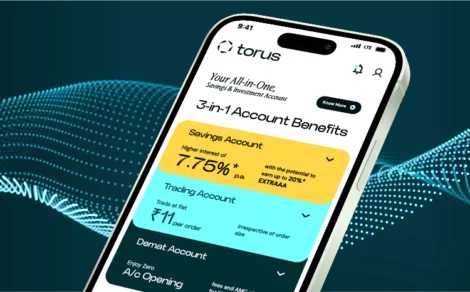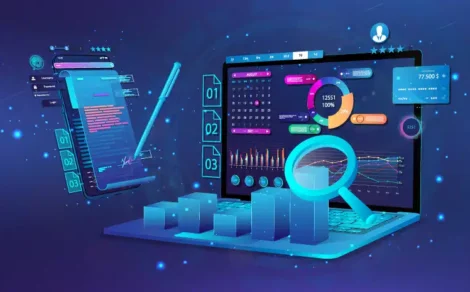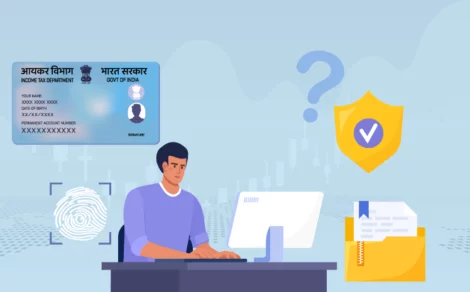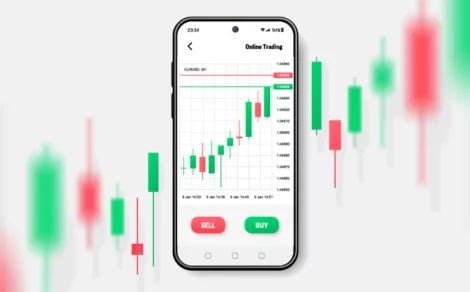A Demat account, short for “dematerialised account,” is an electronic account used to keep your shares and securities in digital form. Introduced in India in 1996, it has eliminated the need for physical share certificates by converting them to electronic format.
These accounts can hold various types of investments, such as stocks, bonds, mutual funds, exchange-traded funds (ETFs), and government securities.
Do you know there are different types of demat accounts in the stock market? Based on your requirements, you have to choose among them to trade in India’s stock market. So, let’s get started.
What are the Benefits of Having a Demat Account
There are multiple benefits of having a demat account, especially for carrying out share market-linked transactions:
-
No Need For Paper Certificates
Before there were demat accounts, the shares were issued as physical paper certificates, which required you to store multiple copies once you purchased them. Chances of loss or damage were high. Additionally, the share transfer process was very lengthy. With the introduction of demat accounts, everything became electronic, which eliminated various complex processes.
-
Nomination Facility
A Demat account also offers a nomination facility following the guidelines set by the depository. If the investor passes away, the nominated person will inherit the shareholding in the account. This feature allows you to plan for the future and helps prevent lengthy steps of inheritance.
-
Easy Access to Your Investment
Accessing your demat account is very simple. With a smartphone or laptop, you can manage your investments anytime and from anywhere. Having a demat account makes your investment journey more convenient and accessible.
-
Various Types of Investment Instruments
In addition to shares, you can use your demat account to hold various assets such as mutual funds, Exchange Traded Funds (ETFs), government securities, and even unlisted shares. This allows you to manage your investment strategy better by helping to create a diversified portfolio.
Different Demat Account Types in India
These are different types of demat accounts available in India for investors:
-
Basic Service Demat Account (BSDA)
Introduced by the Securities and Exchange Board of India (SEBI) in 2012, the Basic Service Demat Account (BSDA) is a special type of demat account. It lowers the burden of Annual Maintenance charges (AMC) for small portfolios and encourages new investors to enter the Indian share market.
- Eligibility for BSDA:
- You should have only one demat account where you are the sole or primary first account holder.
- You can hold only one BSDA account in your name across all depositories.
- For debt and other securities, the total demat holding value should not exceed ₹10 lakh at any point in time.
- AMC Charges for BSDA:
On June 30, 2024, SEBI updated the maximum AMC applicable for BSDA accounts.
-
- Up to ₹4 lakh: NIL
- More than ₹4 lakh but up to ₹10 lakh: ₹100
- More than ₹10 lakh: The account will no longer be allowed to be registered as BSDA. The charges will be applicable as per the Regular AMC.
-
Regular Demat Account
Regular Demat account is the type of Demat account that the two Indian depositories- Central Depository Services Limited (CDSL) and the National Securities Depository Limited (NSDL) offer to investors by default.
This demat account is for Indian residents, and there are no limits on how many securities you can hold in this demat account. To hold this demat account, you usually have to pay an AMC, which ranges between ₹500 – ₹999 per year. Note that some depository participants, like Torus Digital, offer full waivers on the entire AMC.
-
Repatriable Demat Account
If you are a Non-Resident Indian (NRI) and looking to invest in the Indian stock market, you have two main options for demat accounts: repatriable and non-repatriable.
If you choose to open a repatriable demat account, you must follow the regulations set by the Foreign Exchange Management Act (FEMA).
This type of account allows you to transfer funds back to your country of residence. To do so, you just have to link your Non-Resident External (NRE) account with your demat account.
-
Non-Repatriable Demat Account
A non-repatriable Demat account, or NRO Demat account, is specifically designed for Non-Resident Indians (NRIs) who wish to invest in India’s financial market. This type of demat account is linked to your Non-Resident Ordinary (NRO) savings bank to manage your income earned in India.
It allows you to hold shares, bonds, and other financial instruments but restricts the free transfer of funds outside of India. Additionally, you cannot convert your investments into foreign currency.
After-tax deductions, you can transfer only the principal and the interest up to $1 million every financial year as per RBI guidelines.
What are the Documents Required to Open All Types of Demat Accounts?
Here is the list of documents required for different types of demat accounts:
- Basic Service Demat Account and Regular Demat Account
This is the list of documents required to open a BSDA or regular demat account:
- PAN Card
- Aadhaar Card
- Passport size photo
- Signature
- Bank A/C number and statement
- Repatriable Demat Account
If you want to open a repatriable demat account, you need the following documents:
- Copy of PAN Card
- Passport-sized photographs
- Copy of your passport with the visa for your current country of residence
- Copy of PIO (Person of Indian Origin) card or OCI (Overseas Citizenship of India) card
- Copy of identity proof
- Copy of Indian and foreign address proof
- Cancelled cheque leaf or the latest certified bank statement of your NRE bank account
- Duly filled and signed FEMA declaration form
- Non-Repatriable Demat Account
To open a non-repatriable demat account, you need the following documents:
- A photocopy of your PAN card
- Passport-sized photographs
- A photocopy of your passport, along with a valid visa for your current country of residence
- A duplicate of your OCI (Overseas Citizenship of India) or PIO (Person of Indian Origin) card
- A copy of your identity proof
- A copy of documents verifying both your foreign and Indian addresses
- The latest certified bank statement of your NRO bank account or a cancelled cheque.
How to Choose the Right Demat Account for Your Needs?
The correct choice of demat account depends on your individual needs. Regular demat accounts are suitable if you are an Indian resident with varied portfolios. The Basic Service Demat Accounts (BSDA) gives you cost-effectiveness if your portfolio value is low.
Repatriable accounts are designed for Non-Resident Indians (NRIs) who want to invest and transfer funds abroad by linking them to NRE accounts. In contrast, non-repatriable accounts do not permit fund transfers outside India and are linked to NRO accounts.
Summing up
By going through the above sections, you’ll have all the essential information about different types of demat accounts in India. Before opening a new account, use the above details to choose the correct account that fits your requirements.
Additionally, you should assess the depository participant, including their charges and service quality, before opening a new demat account to enjoy a cost-effective, hassle-free investment journey.
With Torus Digital, you do not have to worry about fees as we offer zero opening charges and lifetime AMC-free demat accounts. Open your account with us now!








